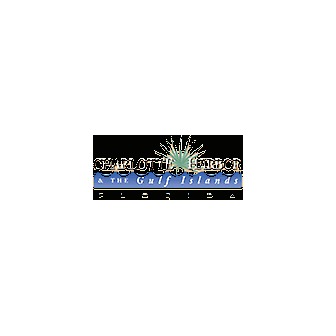5th Annual Pantyhose Free Zone





Peace River Regional Medical Center has teamed up once again with the Cultural Center of Charlotte County, Inc. to bring to you the 5th Annual Pantyhose Free Zone 2013 Women's Expo and would like to invite you to participate! We are currently seeking exhibitors who are interested in showcasing their products and/or services to the female market within our community for this huge one day event that has been deemed the largest of its kind in Charlotte County. Please call 766-4399, or email to: bevin.gallo@hma.com, for more information and to register. There will also be a special Arts & Crafts Sale in Centennial Hall. All homemade crafters can rent space for only $25 plus tax. To secure your location for the craft expo, please call 941-625-4175 ext. 230. This event is the ultimate day for mothers, daughters, sisters and girlfriends to reconnect during a day of shopping, pampering, makeovers, educational information and more.
Center and other non-profit organizations in southwest Florida.What is now the Cultural Center campus was part of Arthur C. Frizzell cattle range and timber tract until 1949. At that time, he sold 80,000 acres to Yellowknife Bear Mines, Ltd., of Canada for $3.6 million. A prominent stockholder was Harold Ickes, former U. S. Secretary of the Interior under President Franklin D. Roosevelt. Yellowknife formed a partnership the following year with the Mackle Brothers Construction Co., prominent land developers of Miami, Florida. For the next five years, the Mackle brothers built community developments on the East coast.
The Mackle brothers, Frank, Elliott, and Robert merged with Chemical Research Corp. of Delaware in 1956 to form General Development Corporation. (Recently re-organized as Atlantic-Gulf Communities) The aim was to convert Frizzell's vast ranch into an entire city named Port Charlotte.
Twenty-five thousand lots were laid out. A national advertising campaign was launched to sell home sites to winter-weary Yankees. The price of lots was attractive, $600 with $10 down and payments of $10 per month.
Historian U. S. Cleveland, a Charlotte County resident nearly all his life, recalls that four model homes were built in 1957 on Sunrise Trail at Elkcam Waterway -- the latter a twist of Mackle. Home costs ranged from $5,900 to $17,990. The first private home was built near the corner of Tamiami Trail and Easy Street, a tribute to a location made famous by factory workers; Great Depression dreams of living.
A thousand homes had been built the following year. However, Jim Ball, local General Development supervisor, reported that newly retired people were having difficulty adjusting to idle time without friends or family nearby. Their letters back home were discouraging.
According to contemporary accounts in the Charlotte County Herald, Frank Mackle, board chairman of General Development, solved this threat to sales by starting an adult education school.
Ball was instructed to rent a store on Easy Street near Tamiami Trail and hire a couple of retired teachers to conduct classes in literature, art, sewing and other subjects of interest to older folks. James H. Baldwin, a new resident and formerly an educator in Indiana, was put in charge.
Hurricane Donna delayed the start of classes in September 1960. Immediately after the storm, a group of five men began clearing away debris around the school. During a coffee break they discussed upcoming adult classes and thought a library would be an important facility also.
Mrs. Wanda Jaques, a new retiree, heard of the idea and gave $100 to start a library. Mrs. Goodsen (Hortense) Wright was appointed librarian, a post she held for many years.
Within a few months, residents donated 2,000 volumes. Proud possessor of Library Card Number 1 was Mrs. Lydia Ann Kennedy.
Elizabeth Cole, of the state public library system, inspected the little library. She wrote a letter of Mrs. Wright commending her for organizing the Port Charlotte facility "according to proper library procedures." Mrs. Wright used the compliment to plead for an up-to-date encyclopedia.
The first classes of PCU opened a little late, but offered 13 subjects to 250 enrollees for a registration fee of $2.
The first graduation exercises were held in June 1961 for 29 students in caps and gowns. Their average age was 64. The event was featured in Life, the largest circulation magazine in America, and shown on television.
The adult school and the public library were so successful; General Development formalized the project as the non-profit Port Charlotte Adult Education Association, Inc.
Mission of the association was set forth in the articles of incorporation adopted August 11, 1961:
"For the instruction of students in a variety of liberal education, literary, scientific, art and ornamental courses, with authority to confer degrees and grant diplomas to such persons as shall in its judgment merit the same."
The incorporators were Frank, Elliott and Robert Mackle. Four other Miami men were listed as trustees: H. A. Yoars, A. J. Fay, W. H. O'Dowd, Jr., and H. W. Gregory.
Because of the emphasis on serious learning, the classes were referred to popularly as Port Charlotte "U."
The classes were moved to larger quarters on the second floor of the Sunny Dell Plaza across the street in October 1963. Forty-three courses were offered, four of them accredited by Edison Junior College. Among the most important was that for nurse aides, which were much needed for aged folks.
Director Baldwin resigned at this time for reasons of health. Col. Floyd Pfeiffer succeeded him.
Explore Related Categories







